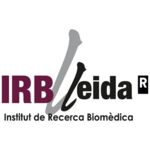Advancing knowledge on the impacts of micro- and nanoplastics on human health
Project Proposal
Seeking to join a consortium for HORIZON-HLTH-2025-03-ENVHLTH-02-two-stage
Can act as:
Seeking expertise:
The Metabolic Physiopathology Research Group focuses on the study of redox biology, physiology, and metabolism in the context of longevity, aging, and age-related diseases. With more than three decades of experience, our work spans from fundamental biology to translational approaches, aiming to identify molecular mechanisms, biomarkers, and therapeutic strategies that promote healthy aging.
An expert group in lipidomics, metabolomics, and aging biology, we offer advanced MS-based lipidomic and metabolomic profiling, integration of clinical and omics data, and the discovery of sex-specific metabolic signatures to support biomarker and therapeutic target identification. The group is structured around several interrelated paradigms, including:
i) population-level studies of aging,
ii) sex-based biological differences,
iii) human and animal longevity,
iv) nutritional and pharmacological interventions to modulate aging, and
v) the study of age-related diseases.
A major strength of our group lies in the development and application of high-throughput, mass spectrometry-based methods, which have enabled us to characterize metabolic and lipidomic changes with unprecedented depth and precision. These analytical capabilities, together with expertise in bioinformatics and clinical data mining, allow us to explore systemic, tissue-specific, and cellular responses to aging and disease.
We have significantly contributed to defining the role of lipid metabolism as a central regulator of aging and longevity. Our studies in human plasma have revealed that lipids undergo distinct and class-specific changes with age, including shifts in energy metabolism, oxidative stress response, and membrane structure. In the brain, we have shown that frontal cortex lipids remain relatively stable with age, while other memory-related regions are more vulnerable. This body of work has led to new hypotheses about how membrane lipid composition supports cellular resilience during aging. In long-lived animal species, we have identified conserved lipidomic adaptations—such as a lower degree of unsaturation—that protect against oxidative damage and contribute to increased lifespan.
Our group also studies how metabolic flexibility can be restored or preserved through nutritional and lifestyle interventions. Using animal models, we have shown that caloric and methionine restriction, as well as supplementation with polyphenols and probiotics, positively affect lipid metabolism and reduce oxidative stress markers, pointing to new opportunities for delaying age-related decline.
Cognitive decline is another hallmark of aging that we approach from a systems biology perspective. Our recent studies highlight the importance of the gut–microbiota–metabolite–brain axis in modulating cognitive function, behavior, and mental health, and suggest that microbially derived metabolites could serve as therapeutic targets.
In the field of cardiometabolic diseases, we have applied lipidomics to investigate mechanisms underlying obesity, metabolic syndrome, and cardiovascular risk. For example, we have described distinct lipid profiles in visceral versus subcutaneous adipose tissue, identified lipid-based predictors of atheroma progression, and revealed phosphatidylserine trafficking defects in non-alcoholic steatohepatitis.
Our translational focus includes the integration of clinical and omics data to identify predictive biomarkers of aging trajectories and disease susceptibility. By mining large electronic health record datasets using AI-based approaches, we have developed novel tools to stratify patients and propose personalized interventions for age-associated diseases.
Altogether, our group combines deep mechanistic insights with clinical relevance, driven by a multidisciplinary team committed to advancing the science of aging and improving human healthspan.
